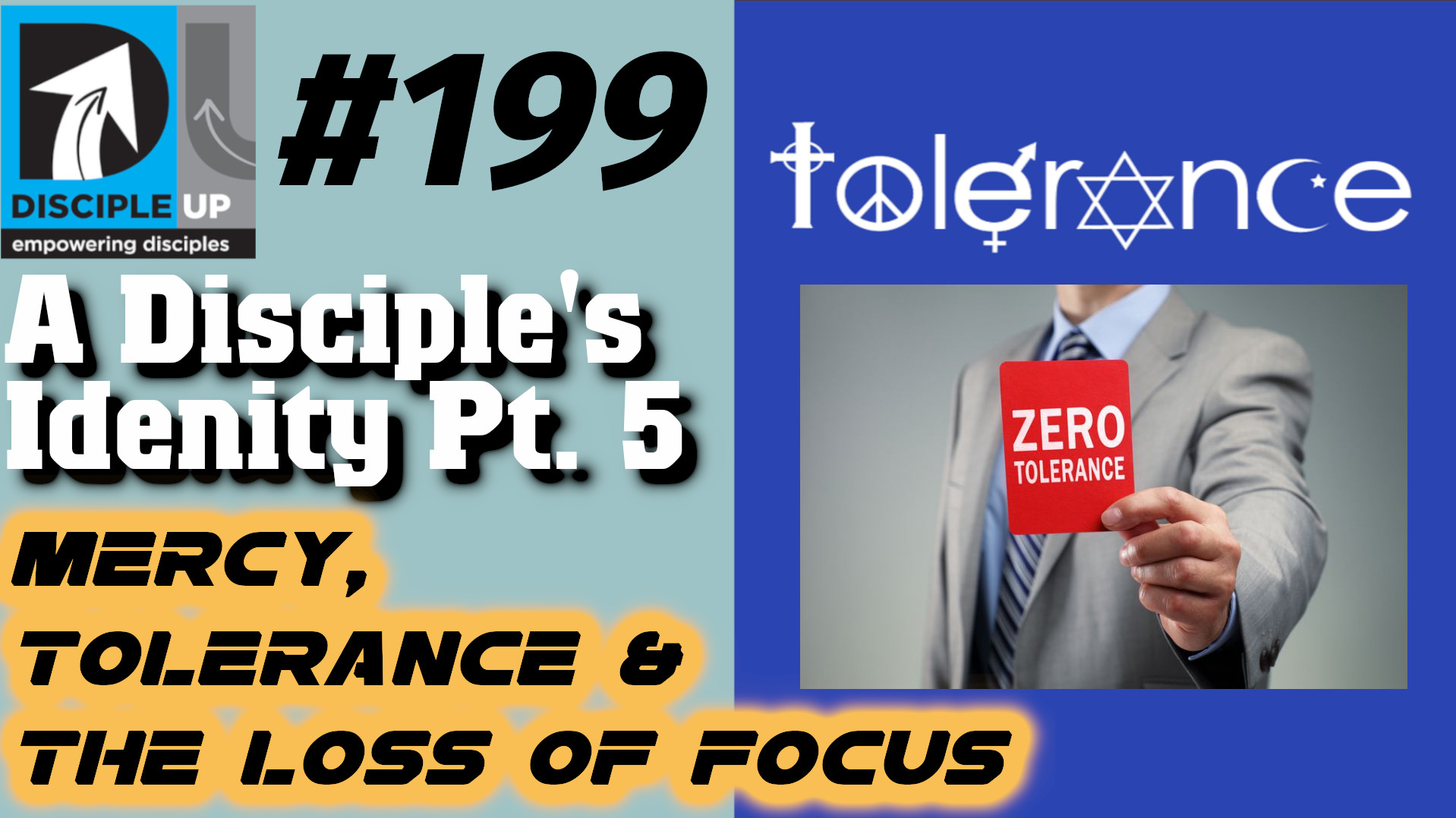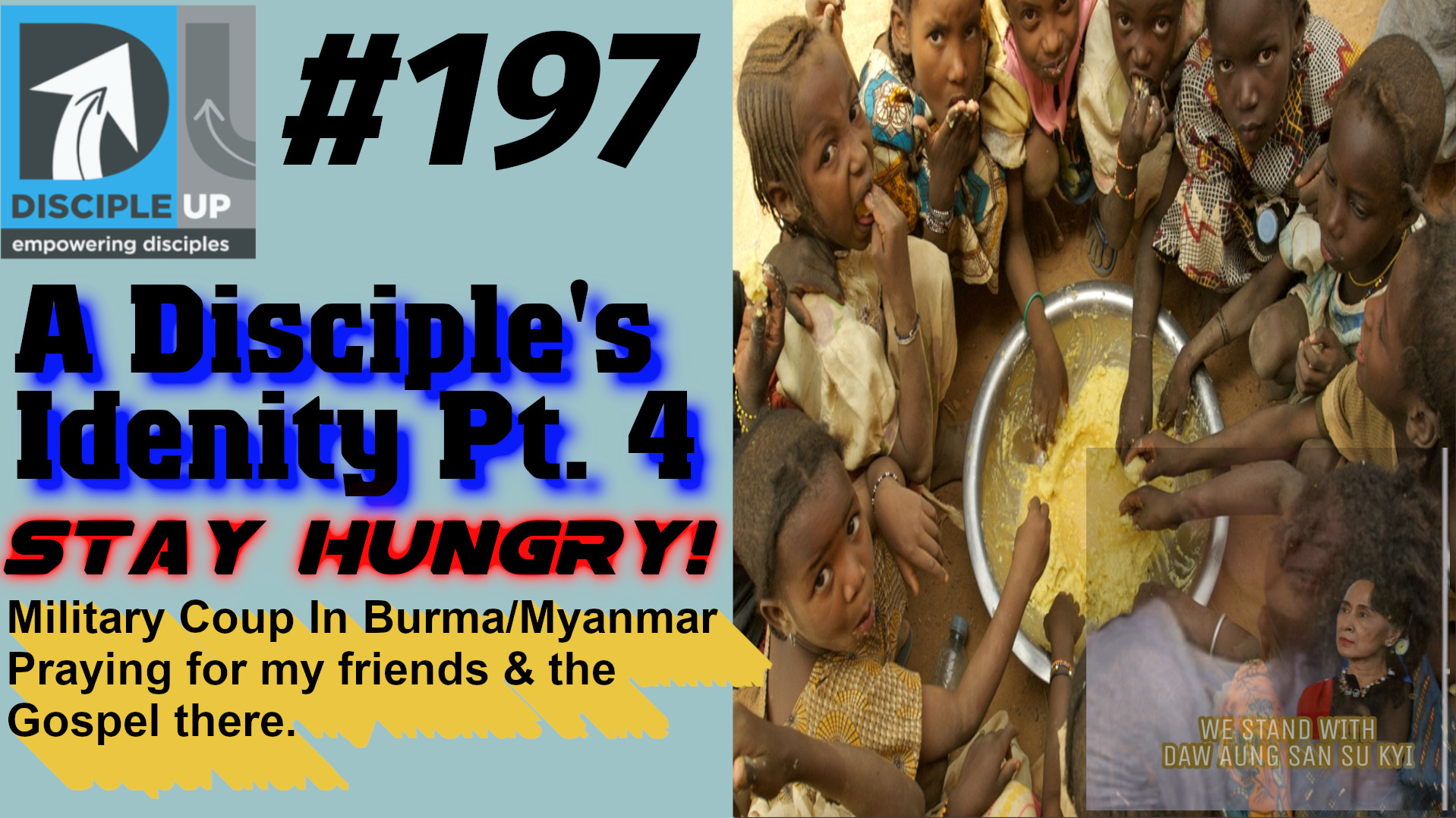Disciple Up #200
Looking Back To Look Forward
By Louie Marsh, 2-24-2021
Intro – Open, then play the opening of episode #1.
The Value of History – a Christian view of history – watching God and man act, as God slowly works out his plan for the age in spite of our sin and folly.
First Episode Discussion of the word Disciple
DISCIPLE
(1) Usually a substantive (μαθητής, mathētés, “a learner,” from manthánō, “to learn”;
Latin discipulus, “a scholar”):
The word is found in the Bible only in the Gospels and Acts. But it is good Greek, in use from Herodotus down, and always means the pupil of someone, in contrast to the master or teacher
In all cases it implies that the person not only accepts the views of the teacher, but that he is also in practice an adherent. A disciple is a “follower,” someone who adheres completely to the teachings of another, making them his rule of life and conduct.
The word has several applications. In the widest sense it refers to those who accept the teachings of anyone, not only in belief but in life. Thus the disciples of John the Baptist (Matthew 9:14; Luke 7:18; John 3:25); also of the Pharisees (Matthew 22:16; Mark 2:18; Luke 5:33); of Moses (John 9:28).
But its most common use is to designate the adherents of Jesus. (a) In the widest sense (Matthew 10:42; Luke 6:17; John 6:66, and often).
“42And whoever gives one of these little ones even a cup of cold water because he is a disciple, truly, I say to you, he will by no means lose his reward.”” (Matthew 10:42, ESV)
It is the only name for Christ’s followers in the Gospels. But (b) especially the Twelve Apostles, even when they are called simply the disciples (Matthew 10:1; Matthew 11:1; Matthew 12:1, et al.).
In the Acts, after the death and ascension of Jesus, disciples are those who confess Him as the Messiah, Christians (Acts 6:1-2, 7; Acts 9:36 (feminine, mathétria); Acts 11:26, “The disciples were called Christians”). Even half-instructed believers who had been baptized only with the baptism of John are disciples (Acts 19:1-4).
The disciple of Christ today may be described in the words of Farrar, as “one who believes His doctrines, rests upon His sacrifice, imbibes His spirit, and imitates His example.”
Jesus used the term disciple but never Christian. The first instance of the word Christian is found in the book of Acts: “The disciples were first called Christians in Antioch” (Acts 11:26). Most Bible scholars agree that it is unlikely that the believers themselves thought up the name “Christians.” The early church had other names for themselves, such as “disciples” (Acts 13:52; 20:1; 21:4) and “saints” (Romans 1:7; 1 Corinthians 16:1; Ephesians 1:1) and “brothers” (1 Corinthians 1:9; 1 Peter 3:8).
The name “Christian,” meaning “belonging to Christ,” appears to have been invented by those outside of the church. It was most likely meant as a derogatory term. Only two other times does the word appear in the New Testament (Acts 26:28; 1 Peter 4:16). The idea that the term Christian was originally a pejorative finds some support in 1 Peter 4:16: “However, if you suffer as a Christian, do not be ashamed, but praise God that you bear that name.”
Thoughts on: Personal Relationship with Jesus Christ
- What does this mean to me?
- What does this mean to my listeners?
- How can I improve on this – how can I communicate this better?
THE “DISCIPLE UP LOW DOWN” From Ep. 1
The Low Down on the “Christian Ghetto.”
When it comes to engaging culture as a Disciple or followers of Jesus there’s several errors that we see over and over again in church history. You can sum them up in three words – Capitulation, Isolation, Communication.
Capitulation.
This is probably the most common response of the church to culture. It’s common because it’s unconscious. We are so absorbed by our culture that we don’t even see how we are surrendering the Gospel to the culture. You can see this in the church of the south that taught slavery for blacks was God’s will. You can see it in the churches in Germany who supported Hitler. Today we see this in churches that almost automatically accept and seek to advance whatever the cause of the moment is. From women’s lib to ecology all the way to gay marriage it’s most common in theologically liberal churches but can be seen everywhere as well.
Isolation is the exact opposite of Capitulation. This occurred quickly in church history. All the monks and people who fled into the desert to live alone or in a small community are examples of this. All of the pole sitting monks – like Simon the Stylite (now a saint in the Catholic church) who lived on top of a pole for decades. They were known as Pillar Saints and were deemed holy because they disengaged from their culture as much as possible. Ironically in so doing they created their own culture of asceticism. Links on this in the show notes on Discipleup.org.
Isolation comes in degrees of course. There aren’t many people who can completely disengage and live in a monastery. But we can create a subculture within our own and that’s exactly what we do. We have Christian versions of just about any business you can think of. From Christian music, books and movies, to Christian stores, people are pressured to only partake of those and shun all the bad stuff the world is putting out.
Steve Taylor captured this brilliantly in his song, “Guilty By Association” on his Meltdown album way back in 1984 – when they still made albums by the way – when he said…
“Only drink milk from a Christian Cow”… what else can I say to that but halle-moooo-yah! Links to Steve’s music are in the show notes at discipleup.org.
My name for this is the Christian Ghetto. By cutting ourselves off from the culture we make it all but impossible to obey Christ’s commands to “make disciples.” Now you might respond, “Hey if we build it they will come.” I say not only is that unscriptural but it’s been tried for centuries and has failed for centuries as well!
And then there’s communication. This of course is what we’re supposed to be doing. Being in the world but not of it. Engaging our culture, understand and taking part in it when and where we can with a clear conscience. Being light in the ever increasing darkness instead of hiding our light under a basket that’s hidden inside our little Christian Ghetto.
Communication is rare because it’s hard and complicated. We won’t always agree with each other about what we should be doing. How do we show our world that God loves them but does not approve of what they do?
We must engage and engage with them in way that they find meaningful. If that makes us feel uncomfortable then that’s the price we must pay to really love the world that way Jesus does. The incarnation and redemption on the cross was anything but comfortable or acceptable for that matter.
If we really are followers of Jesus then we must be willing to go to any length to, in the words of an old hymn, “Rescue the perishing, care for the dying, Jesus is merciful, Jesus will save.”
In the end engaging the culture isn’t about the culture or you and me at all. It’s all about them, those outside of Christ. They are ones we must bring to Jesus. Their souls are what’s at stake. We cannot and will not be able to do that if we choose to remain safe, sound and comfortable in our little Christian Ghettos.
So disciple – are you willing to Disciple Up, what are you willing to do to rescue the perishing?
And that’s my Disciple Up Low Down on the Christian Ghetto. Let me know what you think by e-mailing me at louie@discipleup.org.
Please Get In Touch!
Email – louie@discipleup.org

Check out the Disciple Up Facebook page:
My books –












